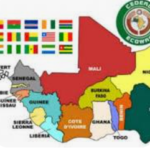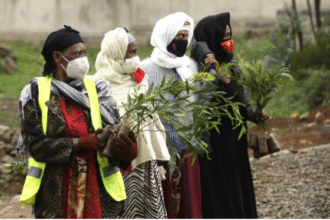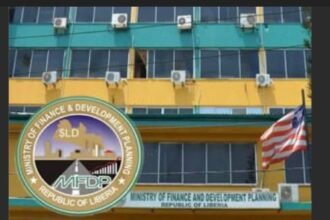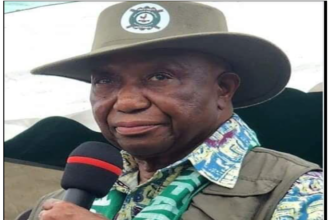By Abu Hassan
Abuja, Nigeria – The President of the African Development Bank (AfDB), Akinwumi Adesina, has warned that a barrage of tariffs imposed by the United States will send “shock waves” throughout African economies, leading to reduced trade and increased debt-servicing costs. His comments come amidst a volatile global trade landscape driven by recent US trade policies.
In a speech delivered at the National Open University of Nigeria on Friday, Adesina highlighted the potential fallout of a baseline 10-percent tariff, along with higher tariffs on Chinese imports to the United States, on the continent. He warned that these levies, with 47 African countries potentially facing even higher tariffs, will weaken local currencies due to reduced foreign exchange earnings.
“Inflation will increase as costs of imported goods rise and currencies devalue against the US dollar,” Adesina stated. “The cost of servicing debt as a share of government revenue will rise, as expected revenues decline.”
He also cautioned that even as some countries look to other trade partners, including China, Europe and Asia are likely to “buy less goods from Africa” due to the global market instability instigated by the tariffs.
Furthermore, Adesina lamented the likely demise of the US African Growth and Opportunity Act (AGOA), a crucial duty-free agreement for 35 African countries set to expire this year. He indicated that the current US trade posture makes the chances of renewal “extremely low,” potentially dealing a significant blow to major exporters like Lesotho and Madagascar, particularly those involved in clothing, diamond, and vanilla trade.
Old Models “No Longer Work”
As he prepares to step down at the end of his second term, Adesina emphasized the need for a new vision for the continent’s future. He argued that the existing global financial system has failed Africa, particularly in addressing debt, climate change, and access to financing. Coupled with “restrictive immigration policies” in developed nations, these challenges necessitate a shift in approach.
He pointed to the dismantling of USAID and similar cuts by European countries, stating that “the old development models that Africa has always relied on will no longer work.”
However, Adesina also stressed the importance of self-reliance, asserting that “aid is not the way to develop” and that “Africa cannot blame others for not taking in its rising migrant population.” He championed the need to create environments where African youth can thrive within the continent.
Critical Minerals and Strategic Engagement
Adesina also touched on the importance of Africa’s engagement in the global rush for critical minerals, urging careful negotiation and a move away from exporting raw materials. He underscored the need for processing and value addition within Africa to reap the benefits of high returns at the top of global value chains.
While not directly mentioning the US deal with the Democratic Republic of Congo on critical minerals, his remarks highlight the crucial role Africa must play in strategically leveraging its vast mineral wealth for its own economic development.
Adesina’s warnings underscore the potential for significant economic disruptions in Africa due to US trade policy, emphasizing the urgency for African nations to diversify their economies, strengthen regional trade, and chart a new course towards sustainable development.









